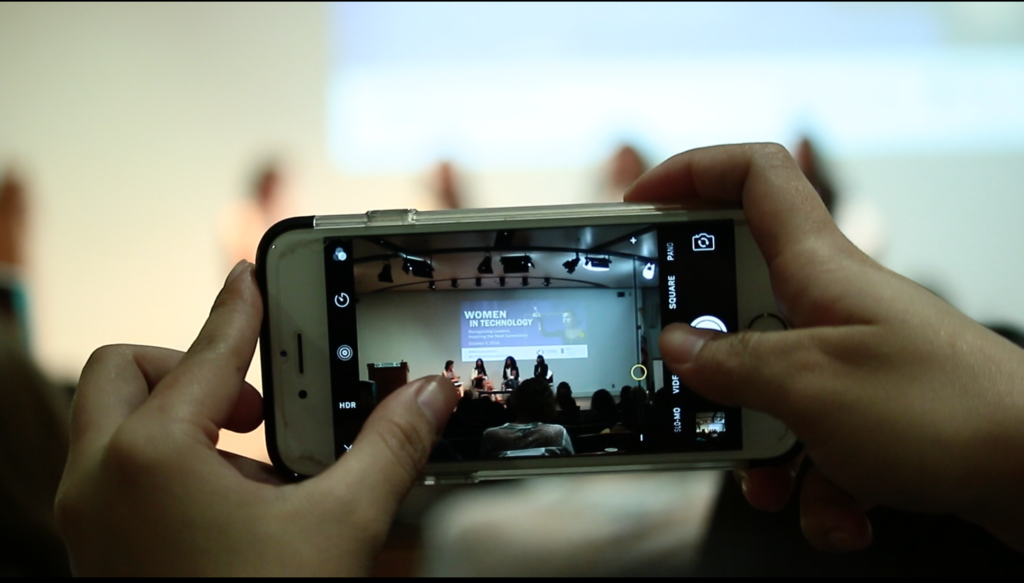On October 5th, the inaugural CITRIS Athena Awards were presented to recognize women and organizations that have significantly contributed in the field of technology and are acting as role-models for other young women and future generations.
The Awards were divided into four categories: Early Career, Next Generation Engagement, Academic Leadership, and Executive Leadership. Tsu-Jae King, campus EECS professor and department chair, and Claire Tomlin, also a campus EECS professor, were given the Academic Leadership Award.
Elizabeth Churchill, Director of User Experience at Google, was given the Executive Leadership Award. Vidya Ganapati, postdoctoral associate at Verily, was given the Early Career Award, and ‘Code to Inspire’ -a non-profit dedicated to empowering women in Afghanistan through education and technology- won the Next Generation Achievement Award.
The Awards were part of a larger conference known as ‘Women in Technology’ by CITRIS, the Banatao Institute, and the Center for Long-Term Cybersecurity. The conference included speakers such as Claire Hough, Nicole Wong, and Dr. Camille Crittenden, and had panels such as ‘Current Trends in Diversity and Data’ and ‘Leaders and Innovators.’
Speakers at the panel noted and addressed current issues faced by women in the workplace and in technology. Panelists expressed discontent over the lack of improvement in the gender gap in computer science industry and academia: the official information for the event also states that the last 25 years have seen a decline in the percentage of women in computing jobs.
“I believe in diversity in tech because it matters: they make the work environment better, they make the product better,” said panelist Andrea Goldsmith, a professor at Stanford University. “We’re leaving a lot of potential powerful companies on the table by not having women entrepreneurs.”
Panelists also discussed ways to increase the number of women in tech: Goldsmith suggested improving data and awareness, and spurring diversity initiatives. Myra Strober, another panelist and professor emerita at Stanford University, cited the need for federal and legislative pushes, a long-term goal to increase talent and educating young women in a more supportive way, rethinking recruitment and hiring, and building support in the workplace.
Several panelists additionally noted the importance of having greater male involvement in the movement. Strober cited the influence of Elizabeth Cady Stanton, author of the Declaration of Sentiments and early activist in women’s rights: Stanton stated that in the movement for suffrage and gender equality, there must be male allies.
“No matter how many of us women try to move the needle, there’s very few of us,” said Goldsmith, expressing the importance of increased solidarity in helping change diversity issues.
Student organizations promoting diversity in technology such as Robotics@Berkeley, Tequity, and FEM Tech Berkeley later spoke at the conference. The day concluded successfully with closing remarks from Crittenden and a reception.
On October 5th, the inaugural CITRIS Athena Awards were presented to recognize women and organizations that have significantly contributed in the field of technology and are acting as role-models for other young women and future generations.
The Awards were divided into four categories: Early Career, Next Generation Engagement, Academic Leadership, and Executive Leadership. Tsu-Jae King, campus EECS professor and department chair, and Claire Tomlin, also a campus EECS professor, were given the Academic Leadership Award.
Elizabeth Churchill, Director of User Experience at Google, was given the Executive Leadership Award. Vidya Ganapati, postdoctoral associate at Verily, was given the Early Career Award, and ‘Code to Inspire’ -a non-profit dedicated to empowering women in Afghanistan through education and technology- won the Next Generation Achievement Award.
The Awards were part of a larger conference known as ‘Women in Technology’ by CITRIS, the Banatao Institute, and the Center for Long-Term Cybersecurity. The conference included speakers such as Claire Hough, Nicole Wong, and Dr. Camille Crittenden, and had panels such as ‘Current Trends in Diversity and Data’ and ‘Leaders and Innovators.’
Speakers at the panel noted and addressed current issues faced by women in the workplace and in technology. Panelists expressed discontent over the lack of improvement in the gender gap in computer science industry and academia: the official information for the event also states that the last 25 years have seen a decline in the percentage of women in computing jobs.
“I believe in diversity in tech because it matters: they make the work environment better, they make the product better,” said panelist Andrea Goldsmith, a professor at Stanford University. “We’re leaving a lot of potential powerful companies on the table by not having women entrepreneurs.”
Panelists also discussed ways to increase the number of women in tech: Goldsmith suggested improving data and awareness, and spurring diversity initiatives. Myra Strober, another panelist and professor emerita at Stanford University, cited the need for federal and legislative pushes, a long-term goal to increase talent and educating young women in a more supportive way, rethinking recruitment and hiring, and building support in the workplace.
Several panelists additionally noted the importance of having greater male involvement in the movement. Strober cited the influence of Elizabeth Cady Stanton, author of the Declaration of Sentiments and early activist in women’s rights: Stanton stated that in the movement for suffrage and gender equality, there must be male allies.
“No matter how many of us women try to move the needle, there’s very few of us,” said Goldsmith, expressing the importance of increased solidarity in helping change diversity issues.
Student organizations promoting diversity in technology such as Robotics@Berkeley, Tequity, and FEM Tech Berkeley later spoke at the conference. The day concluded successfully with closing remarks from Crittenden and a reception.


